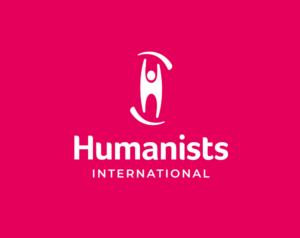At Humanists International, supporting individuals at risk is an important part of our strategic plan, whether it’s through our campaigning for the repeal of blasphemy laws, our advocacy at the United Nations, our research for the Freedom of Thought Report, or in the direct support we provide to individuals.
Over the course of 2022, 231 people from across the globe reached out to us for help. The vast majority of them came from Afghanistan where the Taliban takeover and their ongoing enforcement of strict Islamic law continues to force non-religious people to flee for their safety. Together with applicants from other countries in the region, requests for help from individuals in Asia account for more than half of all requests we received. A quarter of the remaining requests came from the Middle East and North Africa region and the rest came from other parts of the world, including Nigeria and Uganda.
In total, we were able to provide some form of support to just over half of those who contacted us for help—fifty-four percent, to be exact. The majority of that support came in the form of providing advice—often on how to make an asylum claim—or referrals to organizations who might be better placed to provide the support they need.
Of the 231 people, eighty-three qualified for what we consider to be in-depth support: support that requires a higher threshold of evidence, detailed verification, and more intense work on our part. It might be a letter of support for an asylum claim, financial support, legal support, campaigning and advocacy initiatives, or some combination of any or all of these. These cases tend to be complex and take more time, frequently requiring more than one type of intervention. The case of Mubarak Bala is a clear example: we support and coordinate advocacy and campaigning initiatives, and support his legal process, as well as his family.
Due to the complexity of their needs and our limited resources, there is a limit to the number of people we are able to support at any given time. That means that of the eighty-three people who met the requirements to qualify as an in-depth case—i.e. they are non-religious, they have shared all the information needed to verify their case, they are high risk and we are able to help them—forty-three people actually received in-depth support. The remainder are on our waiting list, which gets longer as the days, weeks, and months go by.
For the forty-three people we were able to support, we wrote nineteen letters of support, helped with three relocations, provided legal assistance to two people, provided (often multiple) campaigning and advocacy interventions to seventeen people, and helped fifteen people access more than $60,000. Some of this money came from our own, very small, emergency grants fund. The rest we sought out from partner organizations willing to offer support.
We continue to monitor the circumstances of those people who received support. As of the beginning of January this year, just over half of those who received in-depth support reported improvements in their circumstances. For the remainder, change will take time, but we will continue to provide support should they need it. Thankfully, no one’s case worsened as a result of our work, which is testament to the policies and procedures we have in place to ensure that we do no harm.
Looking at 2023, it’s clear that there are some significant challenges. Demand outstrips our capacity to respond. The organization lacks the linguistic expertise needed to fully verify many of the requests we receive. And due to economic pressures, we failed to reach our fundraising targets in 2022, which will also have implications for the support we can provide this year.
In light of the fact that we will likely continue to receive a similar volume of requests, we are going to focus on the quality of the support we can provide by further limiting the maximum caseload to whom we provide in-depth support at any one time. This will also free up time to produce the Freedom of Thought Report—a vital tool in sensitizing the public to the discrimination faced by the non-religious.
We will reduce the value of our emergency grants, but also the threshold of evidence of persecution required to receive them, in the hope of reaching more people with the limited resources we have available, and also with the aim of bridging the gap for those who do not qualify for support from other organizations. And, of course, we will continue to help people access funds elsewhere wherever possible.
As a team, we will also look for opportunities to deliver tailor-made training to our Members and Associates in order to address the cause, rather than the symptoms. After all, our casework strategy is ambitious: that one day it is no longer needed at all.
Until that day, if you would like to support our efforts, please consider joining us as an individual supporter online at https://humanists.international/aha.
The post Protecting Humanists at Risk: a Review of 2022 appeared first on TheHumanist.com.
Read More TheHumanist.com

